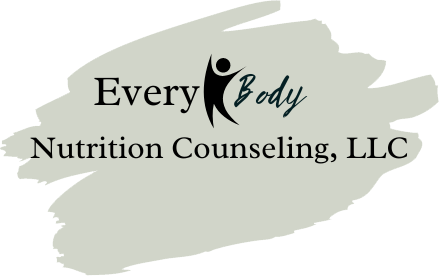Ever Feel Guilty After a Meal?
Have you ever finished a meal feeling physically full, only to be met with a wave of guilt?
“Did I eat too much?”
“Should I have stopped sooner?”
“Now I need to make up for this…”
You’re not alone. For so many of us, fullness was framed as something to avoid or manage. Somewhere along the way, we may have learned that feeling full is “bad”—a sign we lost control or made the wrong choice.
But here’s the truth: fullness is a normal, helpful body cue. Just like hunger, it’s a sign that your body is doing exactly what it’s meant to do—letting you know you’ve had enough for now.
Why Fullness Can Feel So Complicated
If you grew up hearing things like:
“You don’t need seconds.”
“Are you really still hungry?”
“You’ll get a stomach ache if you eat all that.”
…it makes sense that fullness might feel emotionally uncomfortable. And when diet culture layers on messages like “less is better” or “eat until you're just not hungry,” it's easy to internalize the idea that stopping at just enough is virtuous—and anything more is wrong.
But let’s pause here. Fullness isn't a failure. It’s feedback. It’s your body saying, “Thanks—I’ve had what I need.”
What Fullness Really Tells You
You nourished yourself.
You’re not running on empty.
Your body has what it needs to function, think, play, and rest.
And remember: fullness is a spectrum. Sometimes it’s a gentle “I’m good for now.” Other times—like after a special meal or a celebration—it might feel deep and heavy. Neither is wrong. They’re just different experiences.
But What If You Feel Overfull… Often?
If you find yourself consistently eating past fullness—or feeling like you're stuck in a pattern of binging—it’s important to know:
You are not broken.
You are not doing it wrong.
There’s always a reason—and it’s worth exploring with compassion.
Sometimes eating past fullness can be your body’s way of responding to:
Restriction (mental or physical): If your body or brain doesn’t trust that food is consistently available, it may push you to eat more “just in case.”
Emotional needs: Food might be one of the few tools you have for comfort, stress relief, or reward.
Disconnection: Eating quickly, distracted, or while multitasking makes it harder to notice fullness until it feels too late.
If this sounds familiar, I want you to know: You deserve support that focuses on understanding—not judgment. Exploring what’s underneath these patterns is an act of care, not control.
Let’s Practice Letting Go of the Guilt
Here are a few reframes that might help:
Instead of: “I shouldn’t have eaten that much.”
Try: “My body needed nourishment, and I honored that.”
Instead of: “Now I need to make up for this.”
Try: “Fullness is part of a normal eating rhythm—I don’t need to earn or burn my food.”
Guilt doesn’t belong at the table. You don’t need to feel bad for responding to hunger or for enjoying food that satisfies you.
Tips for Navigating Fullness with More Ease
Let’s start by naming some common barriers to noticing or honoring fullness:
Distracted eating: Multitasking or eating in chaos can make it harder to check in with your body.
Meal time dynamics: Eating with kids, family, or in social situations may come with pressure, overwhelm, or urgency.
Clean plate club: Were you taught to always finish your food?
Social or emotional pressure: Feeling guilt about wasting food or wanting to please others by accepting what's offered.
What can help:
✔️ Slow down when you can. But give yourself grace when meals are rushed.
✔️ Practice curiosity—not judgment. Check in before, during, and after meals.
✔️ Make space for satisfaction. Fullness feels more comfortable when food is both nourishing and enjoyable.
Feeling full is not a problem to fix. It’s part of the eating experience—and a sign you’re showing up for yourself in a world that often tells you not to.
Even if you’re still learning to trust that, I want you to know: You’re doing great.
If navigating fullness or eating past it feels complicated, you’re not alone. I offer 1:1 support to help individuals and families build more peaceful, connected relationships with food—without shame, restriction, or judgment.


